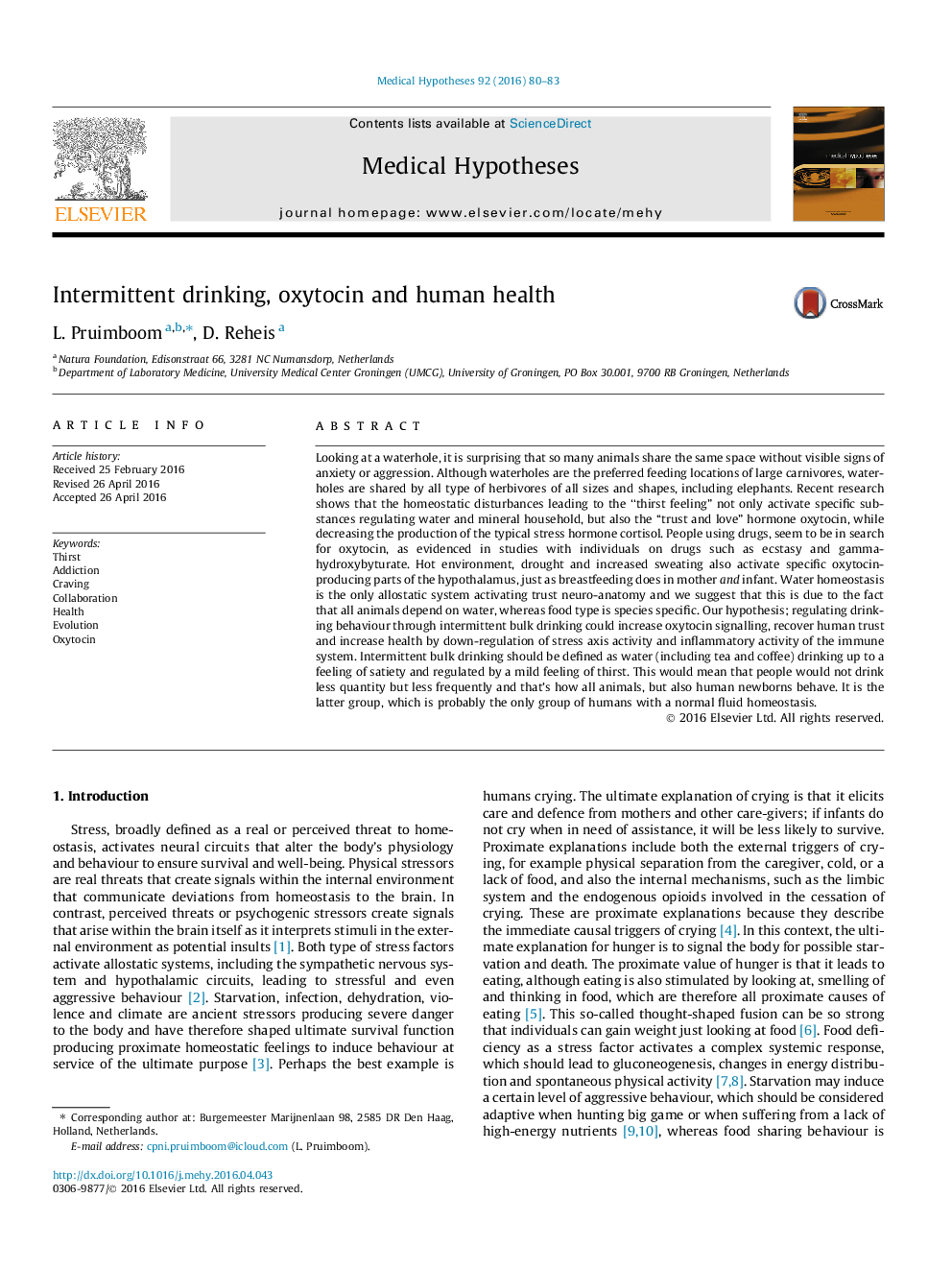| کد مقاله | کد نشریه | سال انتشار | مقاله انگلیسی | نسخه تمام متن |
|---|---|---|---|---|
| 2488923 | 1556553 | 2016 | 4 صفحه PDF | دانلود رایگان |
Looking at a waterhole, it is surprising that so many animals share the same space without visible signs of anxiety or aggression. Although waterholes are the preferred feeding locations of large carnivores, waterholes are shared by all type of herbivores of all sizes and shapes, including elephants. Recent research shows that the homeostatic disturbances leading to the “thirst feeling” not only activate specific substances regulating water and mineral household, but also the “trust and love” hormone oxytocin, while decreasing the production of the typical stress hormone cortisol. People using drugs, seem to be in search for oxytocin, as evidenced in studies with individuals on drugs such as ecstasy and gamma-hydroxybyturate. Hot environment, drought and increased sweating also activate specific oxytocin-producing parts of the hypothalamus, just as breastfeeding does in mother and infant. Water homeostasis is the only allostatic system activating trust neuro-anatomy and we suggest that this is due to the fact that all animals depend on water, whereas food type is species specific. Our hypothesis; regulating drinking behaviour through intermittent bulk drinking could increase oxytocin signalling, recover human trust and increase health by down-regulation of stress axis activity and inflammatory activity of the immune system. Intermittent bulk drinking should be defined as water (including tea and coffee) drinking up to a feeling of satiety and regulated by a mild feeling of thirst. This would mean that people would not drink less quantity but less frequently and that’s how all animals, but also human newborns behave. It is the latter group, which is probably the only group of humans with a normal fluid homeostasis.
Journal: Medical Hypotheses - Volume 92, July 2016, Pages 80–83
